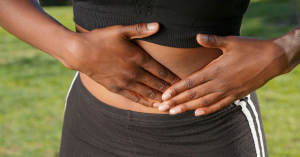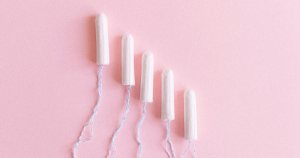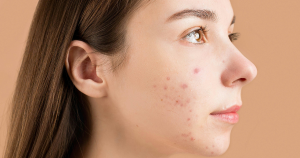Today, hormonal balance isn’t easy, and 80% of women have some form of hormonal imbalance. In our modern world, even the air that we breath is impacting our body’s ability to regulate and heal itself. There are however, some general rules that you can follow in order to give your body the conditions it needs for balance and harmony.
Here are the top 10 lifestyle rules to follow in order to promote hormonal balance and optimise your health:
- Get Enough Sleep
Sleep affects our hormones in many ways. Firstly, almost all hormones show a natural circadian rhythmicity – this means that they rise and fall regularly over a 24-hour cycle. The body relies on prompts such as light, dark, sleeping and wakefulness to release hormones the right hormones at their optimum time for ideal bodily function. When this rhythm is interrupted, so is the natural system of the body to balance and heal itself. The stress hormone cortisol is also hugely impacted by sleep in that the more sleep deprived we are, the more cortisol is secreted in response to stress. This means that getting a healthy 7 to 9 hours of sleep a night is vital to hormonal balance.
2. Eat a Nutritious Diet
The types of food that we eat impact our hormones dramatically, meaning diet is everything when it comes to hormonal health. One of our first defences against disease is ensuring that the food we consume is full of the tools that our body needs for balance. Make sure you’re focusing your nutrition on
- Fibre – dietary fibre is imperative for both gut health (see point 6) and for binding to excess hormones and removing them via the colon
- Antioxidants – foods containing antioxidant ingredients help the body to detoxify against the free radicals in the air, chemicals in processed foods and the pesticide residue often left on our produce – all of which impact our hormones drastically
- Quality Protein – protein is made up of amino acids, the building blocks for all female hormones, making it essential for proper bodily function. It also helps to keep us fuller for longer, having a positive effect on blood sugar levels
- Healthy fats – alongside amino acids, fats also act as building blocks for hormones – especially in the female body. Studies have shown them to improve lipic and hormonal profiles, as well as increasing fertility, decreasing insulin resistance and support a healthy immune system
3. Reduce Stress
A 2019 study by the American Psychological Association reported that over three quarters of American adults experience symptoms of stress. When we are stressed, our body responds by enhancing its secretion of various hormones including cortisol, growth hormone and prolactin amongst others. Over time, the increased presence of these hormones can overwhelm the body’s natural functions leading to endocrine disorders and other serious illnesses including Grave’s disease and diabetes.
Whilst some element of stress is unavoidable in our modern lives, it is vital for our body that we remove any stressors that we can, alongside developing lifestyle habits to counteract stress such as exercising, good sleep practices and mindfulness.
4. Quit Smoking
This one goes without saying. The research on the harmful effects of smoking is vast and all-encompassing. In 2024, you just should not be smoking – either cigarettes or vapes (which, by the way, are criminal in their exploitation of poor cobalt miners in the DRC).
Smoking impacts your hormones both directly by disrupting our levels of reproductive hormones alongside cortisol and normal thyroid function, and indirectly by harming the immune system and rendering our body less able to fight against toxins and disease, as well as causing cancer, stroke, heart disease and many more illnesses. If you’re looking to have children, smoking also decreases egg supply and sperm quality in men.
Quitting smoking is incredibly difficult, but your hormonal and holistic health will thank you for it in more ways than one.
5. Regular Exercise
Exercise is strongly linked to various different hormones. One study has shown that regular physical activity can induce the reduction of excess sex hormones in women, and another links regular aerobic exercise to better estrogen metabolism (which is super important for women with endometriosis or other estrogen-dominant conditions). Alongside this, exercise boosts the happy hormones seratonin and dopamine, making it a great defence against stress and low mood.
Different types of exercise have different effects on the body, though any exercise is better than none! You may want to consider some of the following options to specifically target hormonal health
- Weight training: lifting weights can help boost testosterone for those with estrogen dominant conditions alongside growth hormone (a hormone needed to maintain healthy bones and muscle)
- Cardio workouts: this can be anything from running, HIIT and spin classes to walking. Aerobic exercise gets your heart pumping and breaking a little bit of a sweat. Cardio has been linked to healthier estrogen metabolism and a reduction in high circulating estrogen
- Yoga: yoga is an excellent workout in that it combines physical activity with mindfulness practice and has been shown to reduce stress levels, which impact the body massively (go to point 3). A 2018 study on Iranian women found women who were introduced to a regular yoga practice noticed a significant reduction in stress, anxiety and depression.
6. Look After Your Gut
Did you know that 70-80% of the body’s immune system is contained in the gut? Recent science has really been honing in on the mind/ gut connection and the gut’s impact on our overall health and wellness. The gut is your gastrointestinal system and includes the stomach, intestines and colon. These organs work together to digest nutrients from your food and send them to the areas of the body that need them. The gut microbiome refers to the ecosystem of microbes that live within your intestines.
Amongst other hormones, your gut plays a key role in estrogen metabolism, in that excess estrogen in the body is sent to the gut to be released via your stool. If unfriendly bacteria are present in your gut, this can cause estrogen to be reactivated and released in to your body again, causing estrogen dominance. The gut also plays a key role in releasing mood boosting chemicals and of course, your immune system.
Whilst everyone’s gut is different and there is no one size fits all solution for gut health, some general rules to stick to are as follows:
- Consume a variety of plants: the gut loves variety, as the more diverse the microbes in your gut the healthier it is. Experts in the Netflix documentary ‘Hack Your Health: The Secrets of Your Gut’ say that the ideal dose is between 20-30 different plants a week (this can be fruits and veggies, but also quinoa, nuts, seeds and legumes)
- Eat fibre: the healthy bacteria in your gut feed on fibre (in particular prebiotics), if they don’t have enough fibre to eat, they can start to eat the lining of your gut, damaging the microbiome significantly
- Limit processed foods: processed foods put pressure on the gut in that they take up a lot of nutrients to digest. These vital nutrients are then taken away from the gut which needs them to regulate our immune system and digestion. They can also change the gut microbiota and lead to inflammation leading to chronic illnesses
- Drink water: clean water helps to break down foods during digestion, making it easier for the gut to absorb nutrients
- Eat fermented foods regularly: a Stanford University study found that a diet rich in fermented foods led to enhanced microbial diversity in the gut and improves immune responses in the body
7. Eat Organic (as Much as Possible)
I get it, organic food is expensive and not as accessible as it should be. However, it does make a huge difference to your hormonal health and is worth seeking out as much as possible.
The herbicide residue left on many commercially farmed, non-organic products have endocrine-disrupting properties that impact all stages of hormonal regulation, though has disproportionate repercussions in the reproductive and ovarian cycles.
Minimising your exposure to man-made chemicals in your food products, either via agriculture or processed foods, is absolutely key to maintaining hormonal balance and healing your health.
8. Lower Your Sugar Intake
When we eat sugar (or one of its sneaky counterparts like dextrose, fructose or maltose) it releases a well-known hormone called insulin. Insulin is essentially the key that unlocks the cells and allows blood sugar to be used as energy. Insulin also signals to the liver to store excess blood sugar for later use.
When we eat too much sugar, the body produces a large amount of insulin to cope. This can essentially overwhelm the cells and cause them to stop responding to insulin properly. We then lose the ‘key’ to metabolising sugar, meaning that insulin and sugar builds up in the bloodstream and can cause serious health conditions like insulin resistance and diabetes.
Sugar also increases estrogen, in that excess sugar is stored as fat in the body and fat cells produce estrogen. Therefore lowering your sugar consumption and avoiding refined sugars altogether can help with estrogen dominant conditions.
9. Shop for Natural Materials
I hate to say it, but the fabrics in our clothing, furniture, bedding, towels and more have been found to contain endocrine-disrupting chemicals (EDCs). In fact, Alden Wicker’s book ‘To Dye For: How Fast Fashion is Making Us Sick – and How We Can Fight Back‘ prevents extensive evidence linking the use of synthetic fashion, dyes, flame retardants and stain repellents by popular brands to the rise in autoimmune conditions, asthma, fertility issues and more over the last 150 years.
The best way to avoid exposure to EDCs in fabric is to be mindful of where you are shopping and seek out organic, plant-based materials whenever possible. Swap out plastic-based materials like polyester, nylon and lycra for natural materials such as cotton, hemp and bamboo. Be extremely careful which brands you buy from, as high street brands like Shein, Zara and Mango have come under fire for using materials containing high levels of potentially toxic chemicals. Look out for Oeko-Tex and/or GOTS certified companies to be on the safe side.
10. Choose Clean Toiletries, Cosmetics and Cleaning Products
Endocrine disrupting chemicals can unfortunately also be found in toiletries, makeup, cleaning and menstrual products. Believed to be absorbed through the skin, chemicals such as parabens, benzophenones, bisphenols, and phthalates are metabolised and enter the bloodstream, reeking havoc on our hormonal health.
Vaginal tissue in particular is very absorbent, with one extensive literature review confirming that commercial menstrual products such as pads and tampons contain measurable levels of endocrine disrupting chemicals that can potentially impact a woman’s reproductive health. There is even some evidence to suggest that endocrine disrupting chemicals in cosmetics and personal care products could be one of the root causes of endometriosis.
To avoid unknown exposure to such products, follow these general rules:
- Research brands before purchase and read ingredients list before you buy – here’s a list of the chemicals of concern from Campaign for Safe Cosmetics to look out for
- Visit the Environmental Working Group (EWG) cosmetics database for a searchable list of safe products and brands alongside a list of the toxic twelve chemicals to look out for
- Consider switching to washable and reusable menstrual pads or moon cups from environmentally conscious brands
- If you live in Europe, choose menstrual products with the EU Ecolabel
- Use organic, eco-friendly cleaning products where possible (though be sure to check the labels). The EWG also has a database for safe cleaning products
- Go old school and clean with white vinegar, soda and salt like our grandmas used to do!
Please note, each country has its own regulations and resources, so be sure to do your research on the best brands and ingredients to look out for near you







